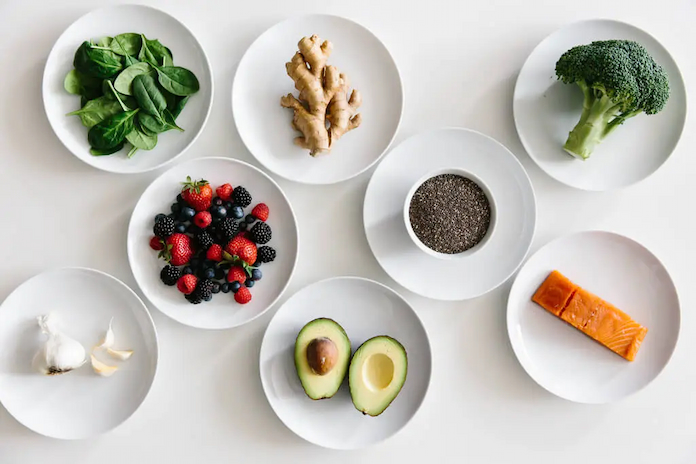
Inflammation is the body’s natural response to injury or infection, but when chronic, it can wreak havoc on our health. Research has linked chronic inflammation to severe health problems, including heart disease, cancer, diabetes, and even Alzheimer’s.
Left untreated, it can cause lasting damage to our organs, joints, and tissues, leaving us tired, achy, and at risk for a host of chronic diseases. If you suspect an ongoing inflammation in your body, don’t despair! Before we dive into the top 5 ways to soothe your body, inside and out, let’s see if natural methods can help fight inflammation and protect your health.
Can Inflammation Be Cured Naturally?
Inflammation can be managed and reduced naturally through lifestyle changes, such as a healthy diet, regular exercise, stress reduction, and getting enough sleep. While not entirely cured, turning to natural methods can significantly improve chronic inflammation.
Additionally, certain foods and supplements have been shown to have anti-inflammatory properties and can help to reduce inflammation in the body. It’s always important to consult a healthcare professional to determine the best course of action for your individual needs.
What Are the Best Natural Ways to Reduce Body Inflammation?
Take Natural Anti-Inflammatory Supplements
While a healthy diet is one of the most important ways to manage inflammation, sometimes it may not be enough. Enter potent yet natural anti-inflammatory products; adding these to your regimen can help to provide additional support for managing chronic inflammation and reducing the risk of chronic disease. There are several reasons why someone might choose to take anti-inflammatory vitamins:
- To alleviate pain: Many natural anti-inflammatory products also have analgesic properties and can help relieve body pain and discomfort. Especially for long-term usage, inflammation supplements like herbs and nutritional supplements may provide a safer and frequently effective alternative treatment for pain alleviation.
- To complement other treatments: You can combine natural anti-inflammatory products with other treatments, such as prescription medications or physical therapy, to help manage inflammation and pain.
- To avoid potential side effects: Some prescription anti-inflammatory medications can have unwanted side effects, so some people may prefer to use natural products instead.
That makes anti-inflammatory supplementation one of the best tools in your arsenal for combating harmful inflammation. Examples of anti-inflammatory substances found in supplements are omega-3 fatty acids, turmeric, ginger, CBD (cannabidiol) and devil’s claw.

It’s critical to note that you shouldn’t use supplements as a healthy diet replacement. The best way to get the anti-inflammatory benefits of these natural products for the whole family is to incorporate them into a diet rich in fruits, vegetables, whole grains, and healthy fats. Additionally, you can use these products as one part of a comprehensive approach to managing inflammation, including regular exercise, stress reduction, and getting enough sleep.
While natural anti-inflammatory supplements can be effective for some people, they may not work for everyone. It’s always a good idea to consult with a healthcare professional before adding any supplements or analgesics to your regimen, especially if you have any underlying health conditions or are taking prescription medications.
Load Up on Anti-Inflammatory Foods
Because they help prevent inflammation, your food choices are just as crucial to your general health as any medications or supplements you may be taking. Making wise dietary decisions, such as including fresh produce and fruits and cutting back on processed sugar, can have a powerful impact.
Increase your intake of fruits, vegetables, and foods with omega-3 fatty acids. Cold water fish, such as salmon and tuna, and tofu, walnuts, flax seeds, and soybeans are some of the richest sources of omega-3s. Grapes, celery, blueberries, garlic, olive oil, tea, and mixed spices are also anti-inflammatory foods (ginger, rosemary and turmeric).
One excellent illustration of an anti-inflammatory diet is the Mediterranean diet. It includes whole grains, fruits, vegetables, fish, and other healthy foods while restricting bad fats like red meat, butter, egg yolks, processed and refined sugars and carbohydrates.
Make Time for Regular Exercise
There are various ways that regular exercise reduces inflammation. For instance, it can assist individuals in maintaining a healthy weight, enhance their mental well-being, and significantly lower the body’s levels of inflammatory chemicals.

Another 2017 study raises the possibility that 20 minutes of moderate exercise would be sufficient to lower TNF levels. According to the authors, those who have mild inflammation may benefit from this.
Look After Your Mental Health
Stress can worsen inflammation and is associated with many mental health disorders. But, reducing stress might be difficult.
Depending on their situation, a person may want to try the following:
- Being aware of when stress occurs;
- Observing situations or thoughts that frequently trigger it;
- Considering ways to manage the triggers, such as asking for help, delegating tasks, or talking to a friend;
- Making time for relaxing activities, such as yoga, meditation, creative hobbies, or being in nature;
- Speaking with a therapist or counsellor, particularly if chronic stress or anxiety impacts their daily lives.
Get Quality Sleep
Disrupted sleep has an impact on both mental and physical health and inflammatory levels. Nevertheless, because so many factors can interfere with sleep, improving sleep may appear different for each individual.
For some, setting a regular sleep routine, making time to unwind before bed, and making the bedroom dark, quiet, and cool can help. For others, it’s avoiding devices and blue light in the evening and addressing underlying mental or sleep disorders that might be impairing quality sleep are a few examples of what it might include. Getting assistance caring for babies who get up frequently at night may benefit parents and caretakers.















